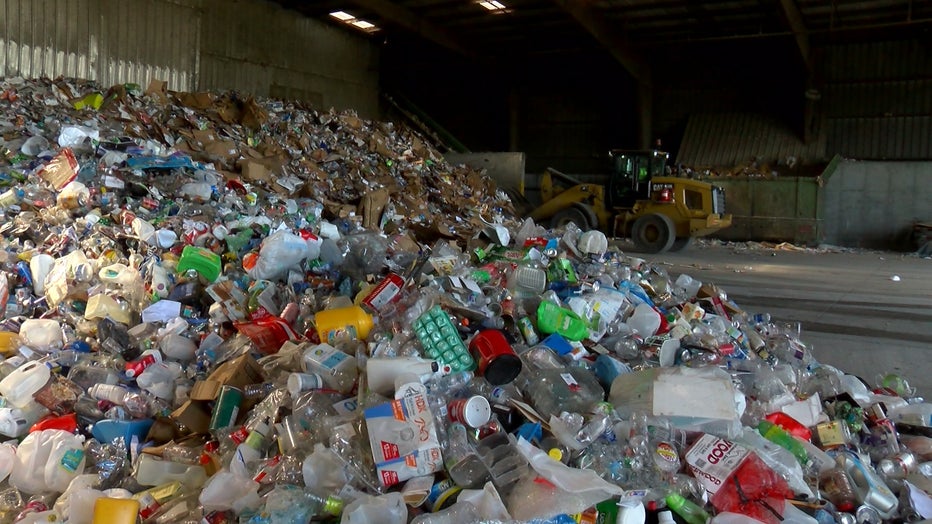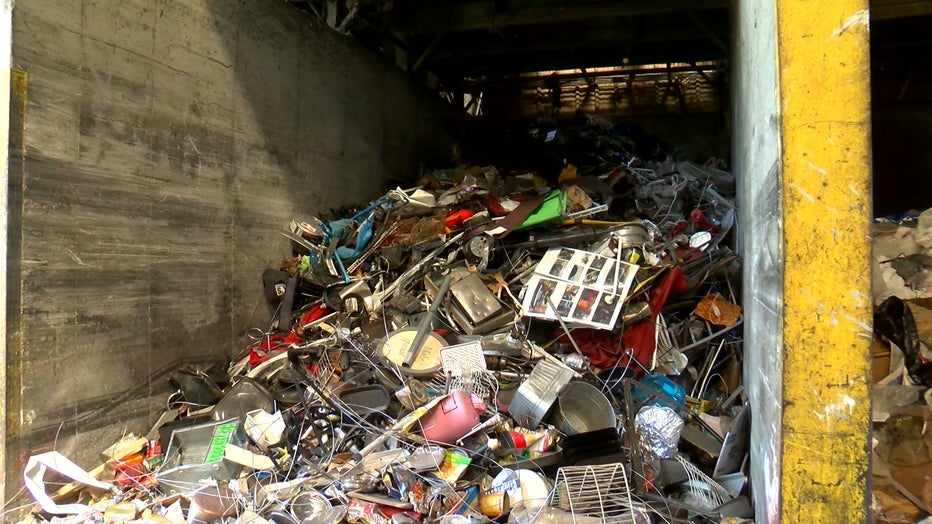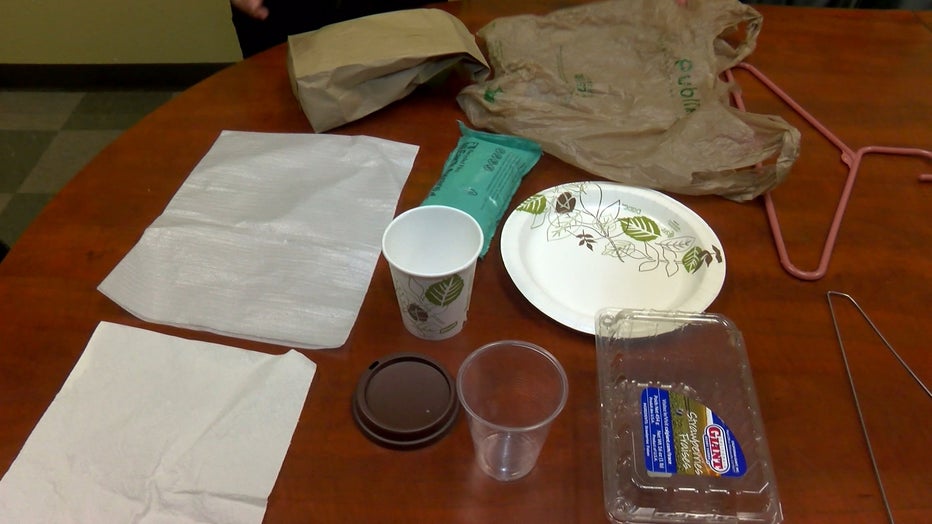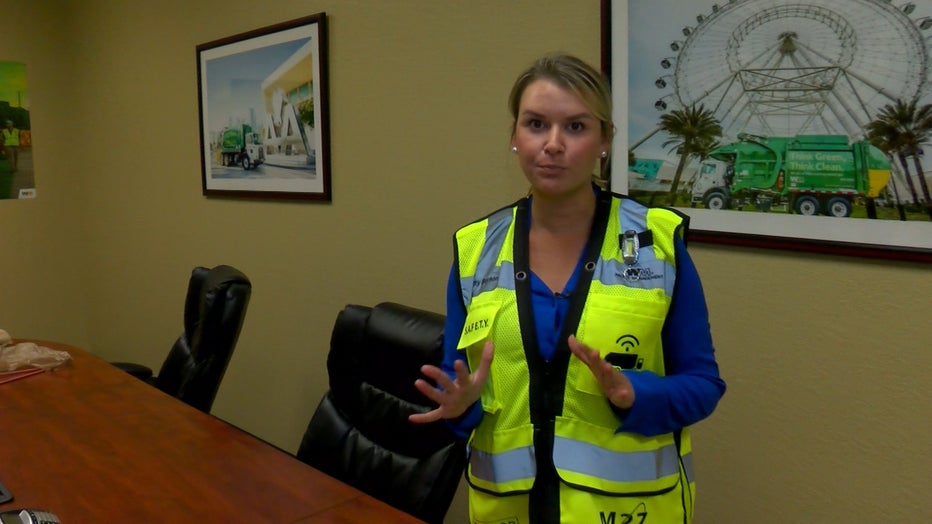Wrong things in your bin force recyclables into landfill, cost big bucks
Wrong things in your bin force recyclables into landfill
Brevard County says improper recycling practices from the public are costing the county money and ultimately most of those items end up in a landfill.
COCOA, Fla. - When the Thanksgiving meals are done and clean up begins, leaders at local recycling centers have a request: Watch what you’re throwing in your curbside recycling bins.
That may sound like a no-brainer, but leaders at local recycling centers say incorrect items coming into their sorting machines are causing major production shutdowns, putting tons of actual recyclables into area landfills and costing them serious money.

Last month, leaders at the Brevard County Waste Management Recycling Center say they spent $75,000 moving non-recyclables out of their facility and to the dump.
“That’s actually a lower number I’ve heard, and that’s just October,” said Community Affairs Manager Amy Boyson.

Stepping into the facility’s sorting room, you can immediately see the three giant areas where workers above are tossing the undesirable items into big piles. Some items immediately stand out as clearly not belonging in a recycling center: piles of metal, cookware, part of a vehicle engine block, computer monitors and TVs, and several empty propane canisters - just to name a few.
Boyson said sometimes even dangerous items can end up in that pile.
“We have batteries that come through,” she said. “Just last week, we had a fire that was caused because of a [lithium ion] battery.”
However, the much larger pile causing them problems isn’t the obvious junk, it’s the stuff you can understand why someone would put in the recycling bin.

Egg cartons, paper plates and cups, plastic packing materials, berry cartons, paper and cardboard items with food scraps on them, bags of shredded paper, and a pile of plastic bags that nearly towers out of its area.
Boyson said even though a lot of the items have recyclable symbols on them, most recycling plants in the state can’t take them.
“This is a business. It’s all about supply and demand, so there has to be a demand for the products that we have,” Boyson said.
Basically put, she said the companies that buy recycled materials from recycling centers have no interest in those items and can’t use items of those qualities.
So all that stuff just ends up in the landfill instead, and often not alone.
Good recyclables that people put into plastic bags or into other containers can’t go through the facility’s sorting machines and are also sent straight to the dump on the recycling center’s dime.
Additionally, if those plastic bags or items like strings of Christmas lights get past sorters and into the facility’s machines, they cause major clogs and force shutdowns of the entire plant until the situation is fixed, making the recycling process less and less cost effective each time.

“Plastic bottles, jugs, and tubs, aluminum and tin cans, newspaper, office paper, and cardboard,” said Boyson listing off the items the plant can accept. “We don’t want to discourage people from recycling, we just want it to be an education.”
Some grocery stores do take things like plastic bags, electronics, and batteries for recycle, but Boyson said those things simply don’t fly curbside.

